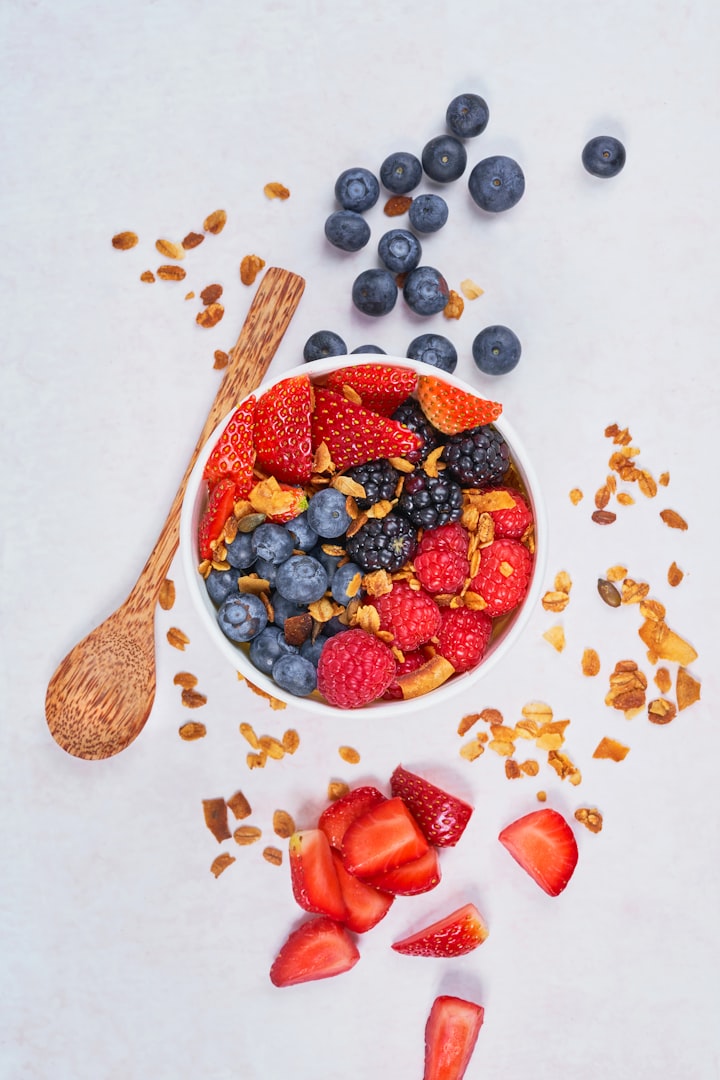The Surprising Health Benefits of a High-Fiber Diet
Healthy Diet

How many times have you heard the phrase You are what you eat? While some people misinterpret this to mean that if they eat junk food, they will turn into junk, it’s actually true that eating a healthy diet of whole foods can have major benefits to your health, from keeping you feeling full longer to protecting against certain cancers and heart disease. One of the best ways to ensure that you’re eating whole foods and getting enough fiber in your diet is by adding fiber-rich foods to every meal and snack.
Fiber Relieves Constipation
If you don’t get enough fiber, your diet can cause constipation. By eating more fruits, vegetables and grains, you ensure your body gets plenty of fiber. One easy way to add high-fiber foods to your diet is by eating avocado. Avocados are rich in both insoluble and soluble fiber. They also contain good fats that help keep cholesterol levels healthy while they also offer significant health benefits to people with diabetes because they can help keep blood sugar under control.
Fiber Improves Digestion
Not only is fiber key for proper digestion, but it can also help control blood sugar levels. Fiber slows down digestion, helping you feel fuller longer and keeping your blood sugar balanced so that you don’t get hungry as quickly. It’s no wonder why fiber plays such an important role in digestive health!
Fiber Can Improve Insulin Sensitivity
The health benefits of high fiber diets are so diverse and beneficial, it’s surprising that not more people follow them. A high fiber diet has been linked to decreased chances of stroke, heart disease, cancer, and diabetes. To increase your intake of fiber naturally try adding avocados (4 grams per half) or a small handful of raw nuts to your daily diet. And don’t forget about whole grains; barley has 8 grams per cup!
Fiber Can Lower Cholesterol
Fiber has cholesterol-lowering properties, so increasing your intake can help you protect yourself from cardiovascular disease. Fiber can also lower blood pressure. Healthy sources of fiber include whole grains, cereals, beans and lentils, nuts and seeds, apples and pears, garlic, onions, broccoli and cabbage. Among fruits and vegetables alone, dark green leafy veggies like kale are especially good sources of fiber; it’s one reason why Popeye ate them all day long!
A high fiber diet can reduce heart disease risk factors
Heart disease is currently responsible for one in every four deaths in America, and that number increases each year. One good way to lower your risk is by eating more fiber, which can be found in many fruits and vegetables. In particular, foods containing high amounts of soluble fiber may reduce bad LDL cholesterol while raising good HDL cholesterol. Several studies have shown that increasing dietary fiber intake reduces heart disease risk factors such as insulin resistance and hypertension.
Fiber can improve blood sugar control in people with diabetes
Research indicates that fiber can help control blood sugar levels in people with diabetes, reducing their reliance on medication. In one study, participants who ate a diet high in fiber for eight weeks lowered their A1C levels (which reflect blood sugar over time) by an average of 1.2 percent.
Fiber may help with weight loss/management by making you feel full sooner, longer.
Fiber is a complex carbohydrate that resists digestion. When you eat fiber, it passes through your digestive system without being broken down by enzymes. Because fiber isn’t digested, it doesn’t provide any calories to your body. But, more importantly for weight loss purposes, fiber may help with weight loss/management by making you feel full sooner and longer. Simply put: eating foods high in fiber can help you feel full on fewer calories!
Some fiber sources also contain prebiotics that promote the growth of good bacteria in your gut.
There’s more to dietary fiber than just that which fills you up. The health benefits of fiber foods extend beyond what you can see on your bathroom scale. These include: better gastrointestinal health, improved cholesterol and blood pressure levels, and an overall feeling of satiety between meals. (1) The best sources for fiber include: high-fiber cereals, beans, fruits, vegetables, nuts and seeds. Below are some surprising fiber foods with added prebiotics. Try them out for a healthy gut!
Some fibers can help to ease the symptoms associated with Irritable Bowel Syndrome (IBS).
Dietary fiber can help to ease symptoms associated with Irritable Bowel Syndrome (IBS). Fruits, vegetables, and whole grains are all rich in fiber; some fibers can help to ease these symptoms. For example, psyllium is used in many commercial IBS medications due to its ability to ease constipation and diarrhea.
There are many types of dietary fiber, from insoluble fibers to soluble fibers, but all have the same goal – they feed and keep our gut healthy.
As we eat and digest food, it travels down our esophagus, stomach and small intestine. From there, it moves into our large intestine where water is absorbed. During its entire journey from consumption to excretion (or elimination), fiber keeps things moving along by absorbing water in your digestive tract. This speeds up digestion and helps prevent constipation.
Twitter Pinterest Quora Tipeee Medium Patreon Buy a Me coffee
By
About the Creator
Healthy Lifestyle the story
I am content writer for articles. I have also provided need articles everywhere. I like articles writer for time to time services provided also customer.






Comments
There are no comments for this story
Be the first to respond and start the conversation.